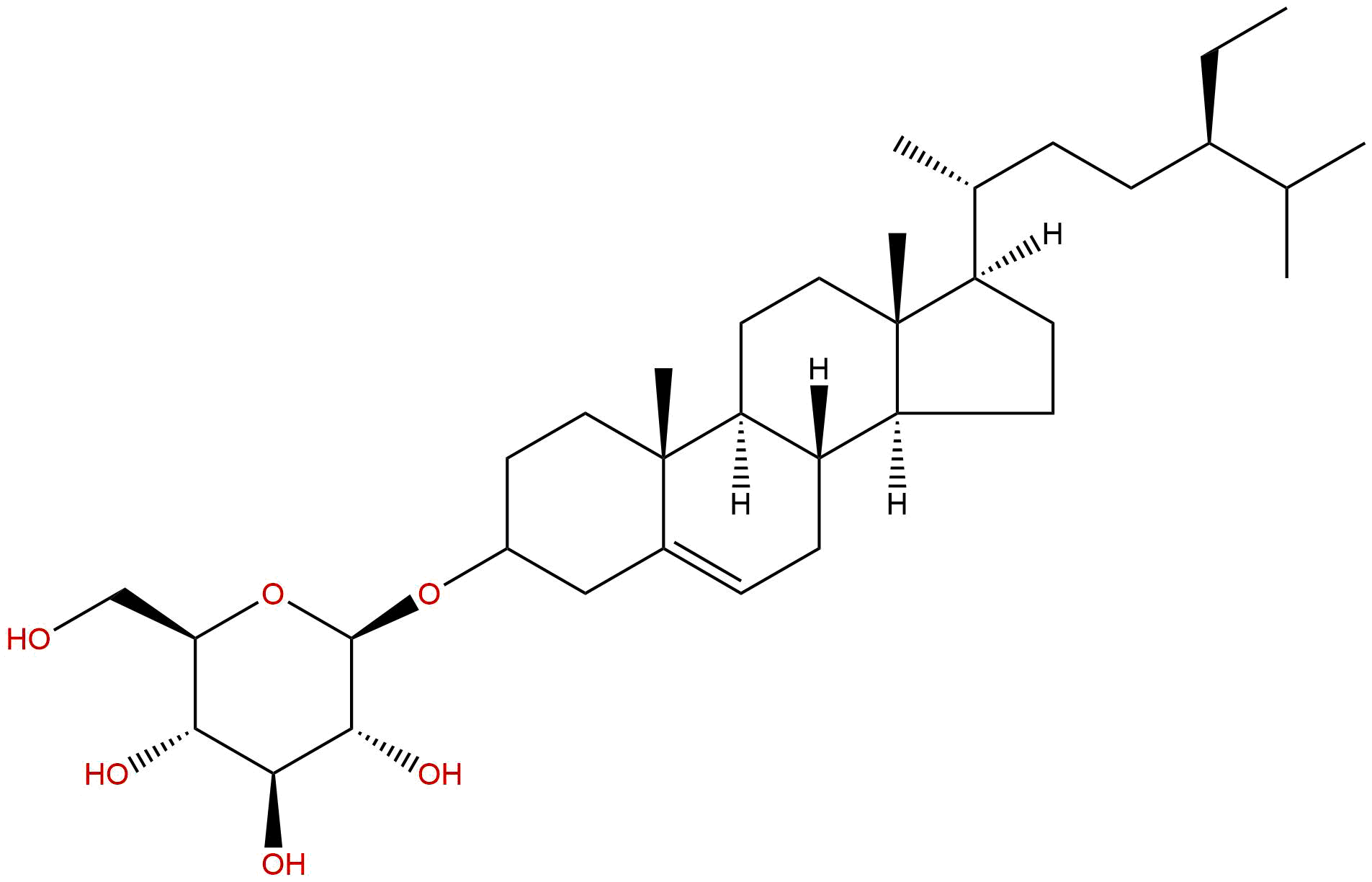Product name: Sitogluside
Synonym name: Beta-Sitosterol-D-glucoside;Daucosterol; Alexandrin; Daucosterin; Eleutheroside A
Catalogue No.: BP0524
Cas No.: 474-58-8
Formula: C35H60O6
Mol Weight: 576.859
Botanical Source: many plants
Physical Description: Powder
Type of Compound: Steroids
Purity: 95%~99%
Analysis Method: HPLC-DAD or/and HPLC-ELSD
Identification Method: Mass, NMR
Packing: Brown vial or HDPE plastic bottle
Storage: Store in a well closed container, protected from air and light. Put into refrigerate or freeze for long term storage.
Whenever possible, you should prepare and use solutions on the same day. However, if you need to make up stock solutions in advance, we recommend that you store the solution as aliquots in tightly sealed vials at -20℃. Generally, these will be useable for up to two weeks.
The product could be supplied from milligrams to grams, up to kilograms
Inquire for bulk scale.
Descriptions:
Daucosterol can protect mice against disseminated candidiasis by the CD4+ Th1 immune response.[1]
Daucosterol has proliferation-enhancing activity for neural stem cells (NSCs), may be involved in IGF1-AKT pathway, and it as an efficient and inexpensive growth factor alternative that could be used in clinical medicine and research applications.[2]
Daucosterol exhibits moderate antibacterial activity against Bacillus subtilis and Staphylococcus aureus.[3]
Daucosterol can inhibit cancer cell proliferation by inducing autophagy through reactive oxygen species-dependent manner.[4]
Daucosterol has neuroprotective activity, could be potentially developed as a medicine for ischemic stroke treatment, can significantly reduce neuronal loss, as well as apoptotic rate and caspase-3 activity, increase the expression level of protein, diminish the down-regulation of p-AKT3 and p-GSK-3β4, thus activating the AKT5 signal pathway, diminish the down-regulation of the anti-apoptotic proteins Mcl-16 and Bcl-27, and decrease the expression level of the pro-apoptotic protein Bax8, thus raising the ratio of Bcl-2/Bax.[5]
Daucosterol has anti-cancer and apoptotic effects in human colon cancer cell line HCT-116, at different doses induces cell cycle arrest at sub-G1 phase of the cell cycle.[6]
References:
[1] Lee J H, Ju Y L, Ji H P, et al. Vaccine, 2007, 25(19):3834-40.
[2] Jiang L H, Yang N Y, Yuan X L, et al. J Steroid Biochem, 2014, 140(2):90-9.
[3] Sultana N, Afolayan A J. Nat Prod Res, 2007, 21(10):889-96.
[4] Zhao C, She T, Wang L, et al. Life Sci, 2015, 137:37-43.
[5] Jiang L H, Yuan X L, Yang N Y, et al. J Steroid Biochem 2015, 152:45-52.
[6] Wang G Q, Gu J F, Gao Y C, et al. Bangl J Pharmacol, 2016, 11(2).
[7] Hui-Ning L I, Liu H J, Xiao-Shuai F U, et al. 2013, 19(01):119-21.


